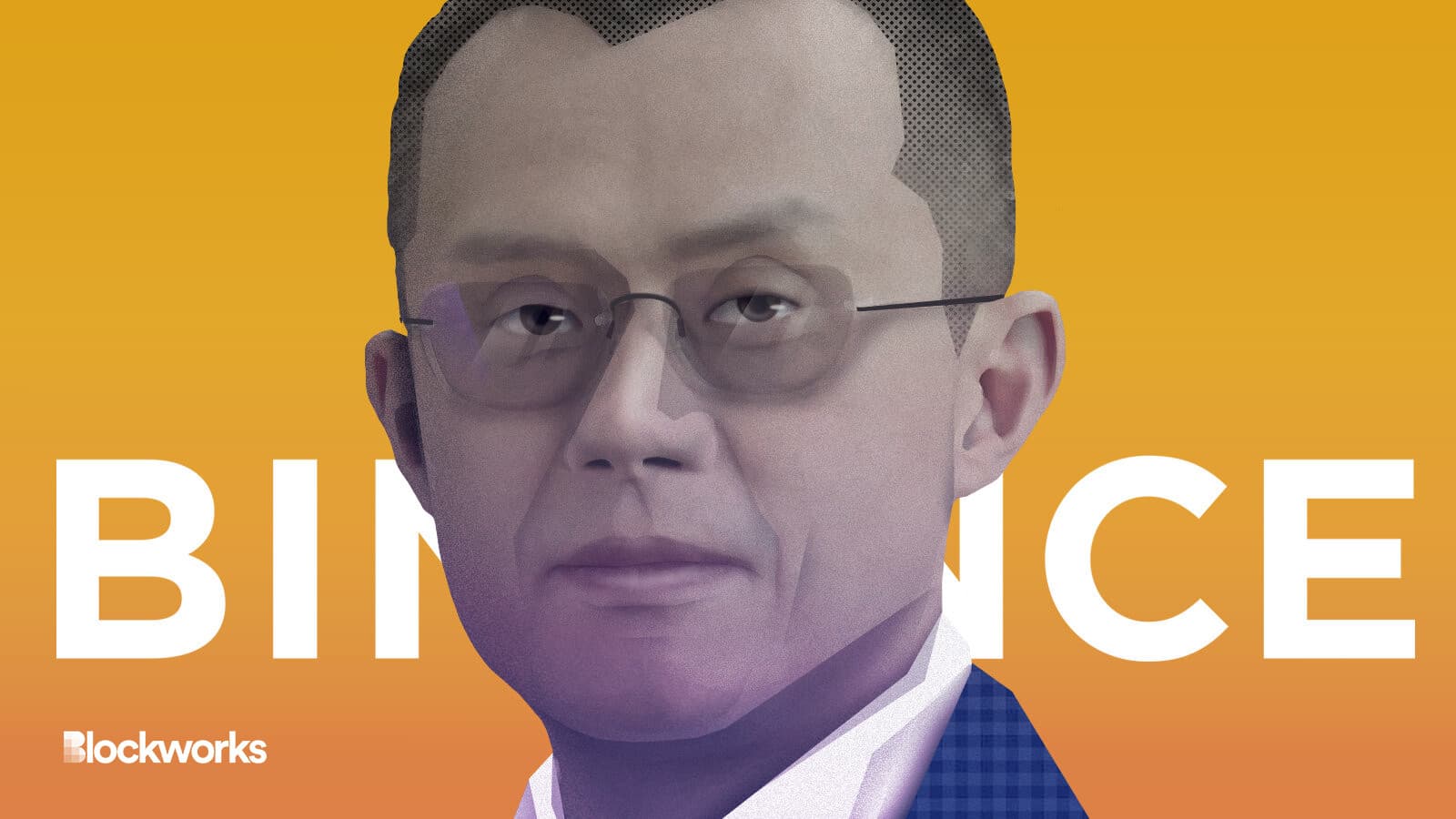Binance Shows ‘Proof’ It Has All Your Bitcoin — Critics Aren’t Sold
Binance hopes its proof of reserves reassures users that funds are safe, but the ecosystem is grappling with trust in centralized platforms

Binance CEO Changpeng Zhao | Blockworks exclusive art by Axel Rangel
Binance sought to quell concerns over its solvency with a “proof of reserve” report last week, but industry insiders and other pundits say the figures don’t do enough.
The top crypto exchange by trade volume tapped the South African affiliate of global accounting and tax advisory firm Mazars to spearhead the report, published on Nov. 7.
Proof of reserves, as they have come to be known, refer to third-party attestations of assets held in custody on behalf of crypto exchange users. The reports have been hotly demanded post-FTX, which had allegedly misappropriated user funds for risky bets across the crypto landscape.
Binance claims to have equivalent funds to cover all its users’ assets one-to-one, according to its website. In the case of a user purchasing one BTC, the exchange’s reserves increase by one BTC guaranteeing customers’ funds are always backed, Binance has said.
“Audited proof of reserves. Transparency,” Zhao tweeted.
Indeed, Binance CEO Changpeng Zhao, like other exchange operators, hopes such declarations reassure users that the firm isn’t re-hypotheticating or otherwise leveraging customer crypto following the FTX scandal.
But critics have found Binance muddied the waters with its proof of reserves report. Mazars only provided a breakdown of the bitcoin and wrapped bitcoin held by Binance as of Nov. 23: 597,602 BTC in liabilities to 575,742 BTC in assets, a difference of 21,860 BTC.
At the time, Binance’s bitcoin-related liabilities would’ve been worth around $9.68 billion, while its assets stood at $9.43 billion — or roughly $245 million less — the Wall Street Journal reported Friday.
The figures essentially state Binance’s bitcoin is 97% collateralized, however Mazars hasn’t accounted for other digital assets the designated as collateral.
“The 3% ‘gap’ is due to BTC loaned to customers, through the margin or loan programs, who may have used tokens out of the report’s scope as collateral. If we take these into account (in other words, if we didn’t provide these BTC loans), we would be 101% collateralized,” a Binance spokesperson tweeted in response to criticism from Kraken co-founder Jesse Powell.
“Big red flag for me is that this seems to be more of an attempt at proving collateral rather than proving reserves,” Powell said. “They even admit to be insolvent with regard to actual assets owed vs tokens controlled. The ‘collateral’ accounting trick is exactly how FTX played solvent as well.”
John Reed Stark, former chief of the SEC Office of Internet Enforcement and vocal crypto critic, also tweeted his misgivings about Binance’s attestation.
“[Binance’s report] doesn’t address effectiveness of internal financial controls, doesn’t express an opinion or assurance conclusion and doesn’t vouch for the numbers,” Stark said. “I worked at SEC Enforcement for [18-plus years]. This is how I define “red flag.”’
Binance is yet to provide a similar attestation of non-bitcoin assets kept on the platform. A deeper breakdown is expected sometime in the near future, Binance has said. A spokesperson was not immediately available for comment.
In any case, it’s unclear just how effective proof of reserves really are in addressing solvency fears. Last month, Crypto.com and OKX users pulled hundreds of millions of dollars from the platforms despite releasing their own reports.
Get the news in your inbox. Explore Blockworks newsletters:
- The Breakdown: Decoding crypto and the markets. Daily.
- 0xResearch: Alpha in your inbox. Think like an analyst.






